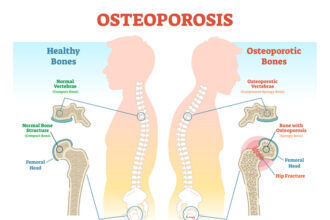A study by researchers, including Glenna Nightingale from the University of Edinburgh, UK, reveals that factors outside an individual’s control, such as socioeconomic status and maternal health habits—including smoking and obesity—significantly influence the likelihood of becoming overweight or obese during adolescence and adulthood. The findings, published on March 26, 2025, in the open-access journal PLOS One, contribute to the ongoing debate on the origins and drivers of the global obesity epidemic.
Obesity is universally acknowledged as a significant public health issue, yet there is ongoing disagreement among experts regarding the root causes and contributing factors to the escalating rates of obesity. The discourse often centres on the relative impact of genetic and behavioural factors versus environmental influences like socioeconomic conditions. The recent study delves into these complexities by assessing the influence of various determinants on body weight. These include societal aspects, such as the type of employment and early life conditions, like birth order, mode of delivery, and maternal health behaviours.
The research utilised data from the 1958 National Child Development Study, which tracked over 17,000 individuals born in a single week of March 1958 across England, Scotland, and Wales, offering a longitudinal insight into weight patterns from childhood to middle age. Specifically, the study evaluated the prevalence of overweight, obesity, and severe obesity at ages 16 and 42, alongside weight changes occurring from age 16 to 42—a period that encapsulates the rise in obesity rates within the UK.
The analysis highlighted that children of mothers who were obese or smoked during pregnancy are at an increased risk of being obese or severely obese at the ages examined. These early-life influences were found to exert a long-lasting effect on an individual’s weight trajectory. Notably, the potency of these predictors remained consistent before and after the onset of rising obesity rates in the UK, indicating that individual behavioural factors might not have shifted significantly during this time.
The findings underscore the importance of addressing societal and early-life risk factors in obesity prevention strategies for children and adults. The researchers suggest that the persistence of individual risk factors as obesity rates surge necessitates further investigation into the societal factors that may be driving the current obesity pandemic.
The study’s authors remark on the enduring impact of maternal influences up to the age of 42, noting that these factors were equally influential before the onset of the contemporary obesity crisis. This observation supports the notion, initially posited by Geoffrey Rose, that new research should focus on community and societal-level factors that might have contributed to the current obesity pandemic, as the individual-level risk factors seem to have remained stable over the decades covered by the study. This approach could yield vital insights into the broader, systemic causes of obesity and inform more effective public health interventions.
More information: Glenna Nightingale et al, Sociodemographic and early-life predictors of being overweight or obese in a middle-aged UK population– A retrospective cohort study of the 1958 National Child Development Survey participants, PLOS One. DOI: 10.1371/journal.pone.0320450
Journal information: PLOS One Provided by PLOS








